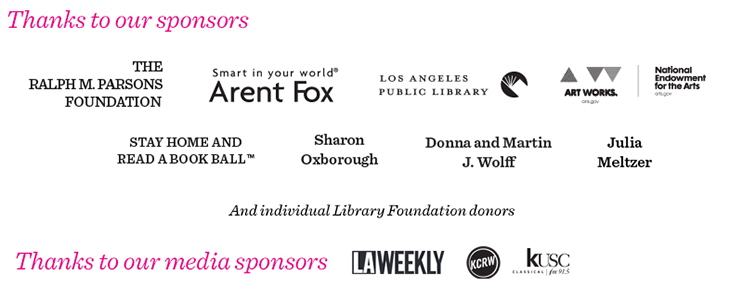
Listen
McDonnell’s Queens of Noise: The Real Story of The Runaways is a testimonial to the inspiration and insecurity of the trailblazer, a look at the Los Angeles music scene of the 70s and women on the run. Joined by Exene Cervenka of seminal L.A. punk band X and Riot Grrrl Allison Wolfe—veteran journalist McDonnell will lead a discussion on music making and selling, legacies, and the women who are breaking new ground.
Evelyn McDonnell is the author and co-editor of five books, including Mamarama: A Memoir of Sex, Kids and Rock ‘n’ Roll. She has worked as a pop music critic for the Miami Herald and as senior editor for the Village Voice. She’s won several awards, including an Annenberg Fellowship at USC and first place for enterprise by the South Florida Black Journalists Association. She is currently a journalism professor at Loyola Marymount University.
Exene Cervenka is an American singer, songwriter, artist, and activist. Shortly after moving to Los Angeles in 1977, Exene met John Doe at a poetry workshop at Beyond Baroque. Together with guitarist Billy Zoom, they formed the seminal Los Angeles punk band, X. To this day, X continues to play nationally and internationally with all four original members: Cervenka, Doe, Zoom, and drummer D.J. Bonebrake. Over the years, Exene has published poetry, prose, and art books; exhibited her collages in museums and galleries; recorded and toured with her other bands; played solo shows with an acoustic guitar and her songs; and said "yes" to just about every insane, imaginative, worthwhile project other thinking humans have offered her.
Allison Wolfe formed the all-girl punk band Bratmobile with the intention of helping to create and expand a feminist music scene spearheaded by Kathleen Hanna and Bikini Kill. This feminist, DIY (do-it-yourself) music scene, soon to be coined "riot grrrl," had a goal of making the punk rock scene more feminist while simultaneously making academic feminism more "punk." Later recognized as a strain of third-wave feminism, riot grrrl spread throughout the 1990s, mostly in the US and UK, as a loose network of young, feminist, alternative music scene women who believed in fighting the power with cultural activism. After the demise of Bratmobile and riot grrrl, Allison continued to be active in bands such as Cold Cold Hearts, Deep Lust, Partyline, and Cool Moms. In 1999-2000, she also initiated Ladyfest, a non-profit, DIY feminist music festival. Allison currently resides in Los Angeles, where she is working on an oral history of riot grrrl book/film project.
